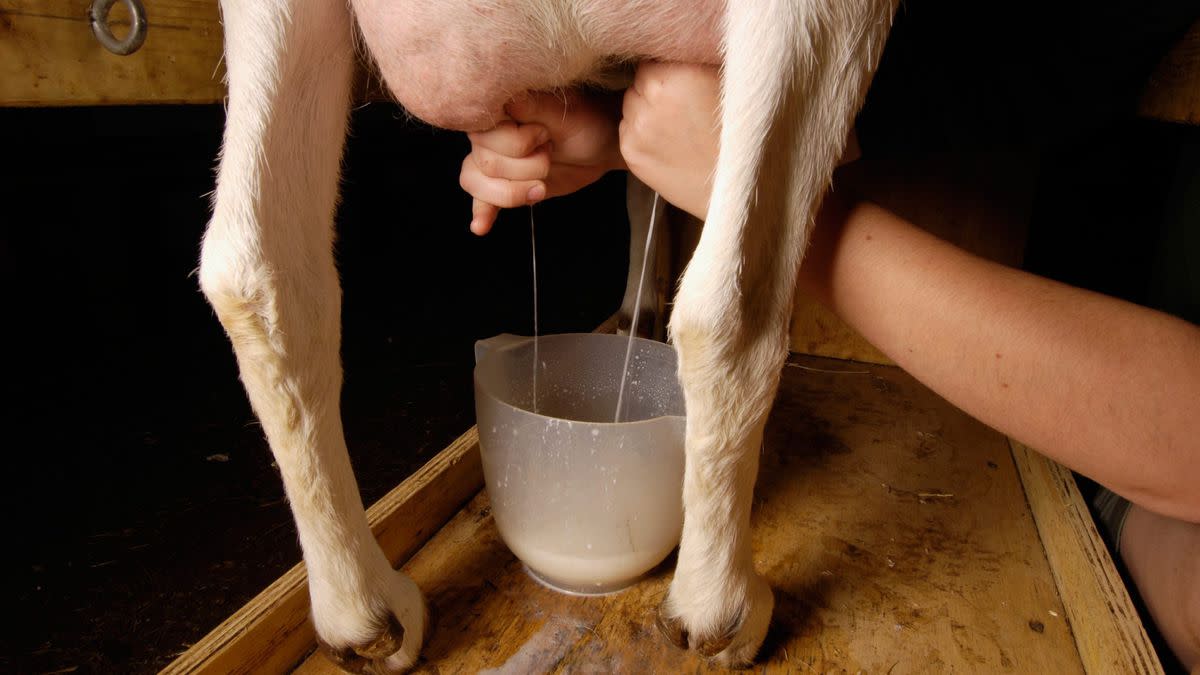Everything You Need to Know About Mexico's Secret Morning Cure-All

? Simon Clay/Getty Images/Dorling Kindersley
If you're in Mexico and you feel like getting drunk in the morning, no problem. You could kick back a michelada, a beer-based version of the bloody mary. Or if the weather's cooler, you might sip a champurrado, spiked Mexican hot chocolate often served with warm, sugary fried churros. But the most interesting way to get a sunrise buzz south of the border is to find a cattle ranch, milk a cow, and fix yourself a typical Mexican drink known as a pajarete.
On a warm Sunday morning down a dead-end street in Riberas, a neighborhood in the Lake Chapala area in the state of Jalisco, Braulio Limon, a rancher from a long line of ranchers, is showing me the calluses covering his palms. As the international community in the area grows, many cattle ranchers have been pushed into the hills, but Limon has so far managed to remain lakeside with a nice chunk of government-subsidized land and a view of the mountains. "The government could kick him out any time," Limon's friend and doctor Adriana Gonzalez told me. She's among the handful of people who have wandered over to the ranch to hang out, chat, and drink.
That this idyllic place might one day not exist is tragic: In my life, I've stumbled onto only a few spots, mostly old-timey bars, that have this particular hidden-treasure feel – where the people are so welcoming, so unpretentious, you're immediately swept into the fold. Limon's cats and dogs and chickens and ducks scurry among the cattle. A child cradles a tiny puppy and then passes it to me. Limon's wife Lupita sweeps dust from the ground, dressed like high society in a skirt and high heels, deflecting the strong sun with a "Bienvenido a Mazatlan" straw hat. Limon wears cowboy boots any New Yorker would swoon for. "You Americans use a lot of tractors," he told me. By contrast, his ranch is a no-frills affair. He prides himself on being totally natural, totally organic. He doesn't even use fertilizer.
RELATED: Do?a Mela Is a Cook, Gardener, and Guardian of Mexico's Indigenous Culinary Culture
A visitor pulls up a low stool beside a cow named Texana whose legs are tied together. "Texana is the star of the ranch," Adriana Gonzalez told me. "She produces 30 liters of milk each day." With his bare hands, the visitor milks Texana into a large plastic cup that he's already prepared with the other pajarete ingredients – chocolate (some people prefer coffee), cane sugar, and of course, a good dose of pure cane-sugar alcohol, which makes the raw milk safe to drink. "It's like an organic cappuccino," Gonzalez points out. But it's much cheaper than any organic beverage in the U.S. would be – it costs the equivalent of about a dollar.
Of course, Sunday is hangover day and a pajarete is the perfect hair of the dog, but Limon receives visitors all week long – mostly workers fueling up for a long day on the job. Because a pajarete is so protein-packed, workers can drink one at seven in the morning and make it through most of the day without a meal.
Once everyone's sipping their warm, sweet drinks, I ask them what they like best about the pajaretes, which some people believe have curative properties.
"Chocolate," said a 10-year-old.
"I was anemic and now I'm not," said Limon.
"Pajarates cure my migraines," said one visitor.
"They make me stronger," said another.
Before I go, I buy a kilo of fresh eggs and a block of queso fresco, a typical Mexican cheese that Lupita makes with the raw cow milk.
RELATED: A Return to Indigenous Mexican Cooking in New York City
If you get to the Lake Chapala area and find Limon's farm, make a day of it: Once you've had your pajarete, walk 10 minutes to the carretera and catch a bus into the village of Ajijic, where people stroll along the water on Sundays past stands selling jewelry and crystals and handmade blankets. Later, wander around the corner for live music and one of the best dinners in town at Cocinart. Sleep well, wake up, and before you go, grab another pajarete for the road.